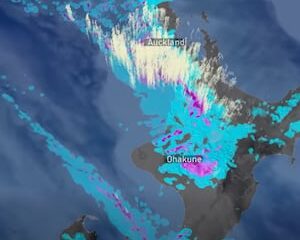Health
Less Than Half of Nursing Graduates Find Jobs in New Zealand

Recent figures reveal that only 323 out of 722 nursing graduates have secured jobs through the Advanced Choice of Employment Mid-Year matching process conducted by Health NZ. This alarming statistic highlights a growing concern within the nursing community and raises questions about the future for new graduates entering the healthcare workforce.
Bianca Grimmer, co-president of the Nurses Organisation student unit and a soon-to-be graduate, expressed her disappointment at the current employment situation. “It’s really discouraging,” she stated. “This uncertainty is affecting all of our cohorts from year one to year three, causing many students to reconsider their degree or seek employment outside of nursing.” Grimmer pointed out that Te Whatu Ora, New Zealand’s health authority, used to hire between 80% and 90% of all nursing graduates, but the situation has worsened significantly. Last year, only three in five mid-year graduates obtained jobs, and this year’s figures are even lower.
The latest data from Health NZ indicates that there were 173 applications from graduates still seeking employment after finishing their studies at the end of last year. National Chief Nurse Nadine Gray noted that those who did not secure hospital positions were placed into a talent pool available to all registered employers in the health sector. Fortunately, many of the initially unmatched applicants have historically found roles from this talent pool, with around 84% of nurses eventually securing jobs in both 2023 and 2024.
Gray emphasized that while many new registered nurses (RNs) typically look to hospitals for their first positions, it is crucial for students to explore opportunities across the entire health system. The government is taking steps to bolster the nursing workforce in primary and community care, announcing a series of investments aimed at addressing the shortage. This includes $30 million over five years to fund 400 graduate nurses entering primary and community care each year. Providers will receive $15,000 for employing a nurse in an urban setting and $20,000 in rural areas. Additionally, the government will allocate $34.2 million over five years for 120 nurse practitioner training places in primary care annually starting in 2026, alongside a further $21.6 million over four years to enhance advanced tertiary education for up to 120 primary care registered nurses each year.
A recent survey conducted among 1,246 nursing students revealed that 62% would consider seeking employment abroad if they are unable to find a graduate job in Aotearoa New Zealand. This figure rises to 73% among Māori students, highlighting a significant concern about the local job market. Grimmer mentioned that during a recent jobs expo, Australian recruiters were actively enticing graduates with better wages and working conditions.
“We have a health system in crisis and desperately need more homegrown nurses,” Grimmer asserted. “With 30,000 Kiwis leaving for Australia in the past year, this short-sighted decision by Te Whatu Ora will see more graduate nurses packing their bags.”
Compounding the issue, around 36,000 members of the New Zealand Nurses Organisation (NZNO) are preparing for a 24-hour national strike on July 30, 2024, in response to stalled Collective Agreement negotiations. The union has highlighted Health NZ’s reluctance to commit to its responsibility of employing new graduates as one of the significant points of contention.
As the nursing landscape continues to evolve, the challenges faced by recent graduates underscore the need for urgent action to ensure a sustainable and adequately supported healthcare workforce in New Zealand.
-

 Sports2 months ago
Sports2 months agoNetball New Zealand Stands Down Dame Noeline Taurua for Series
-

 Entertainment2 months ago
Entertainment2 months agoTributes Pour In for Lachlan Rofe, Reality Star, Dead at 47
-

 Entertainment2 weeks ago
Entertainment2 weeks agoNew ‘Maverick’ Chaser Joins Beat the Chasers Season Finale
-

 Sports2 months ago
Sports2 months agoSilver Ferns Legend Laura Langman Criticizes Team’s Attitude
-

 Politics3 weeks ago
Politics3 weeks agoNetball NZ Calls for Respect Amid Dame Taurua’s Standoff
-

 Entertainment2 months ago
Entertainment2 months agoKhloe Kardashian Embraces Innovative Stem Cell Therapy in Mexico
-

 Sports2 months ago
Sports2 months agoGaël Monfils Set to Defend ASB Classic Title in January 2026
-

 World3 months ago
World3 months agoPolice Arrest Multiple Individuals During Funeral for Zain Taikato-Fox
-

 Entertainment4 weeks ago
Entertainment4 weeks agoTyson Fury’s Daughter Venezuela Gets Engaged at Birthday Bash
-

 Sports4 weeks ago
Sports4 weeks agoHeather McMahan Steps Down as Ryder Cup Host After Controversy
-

 Entertainment4 weeks ago
Entertainment4 weeks agoTyson Fury’s Daughter Venezuela Gets Engaged at Birthday Bash
-

 World4 weeks ago
World4 weeks agoNew Zealand Firefighters Plan Strike on October 17 Over Pay Disputes


















